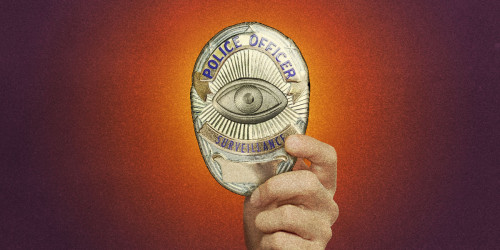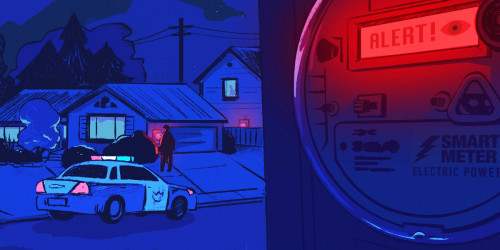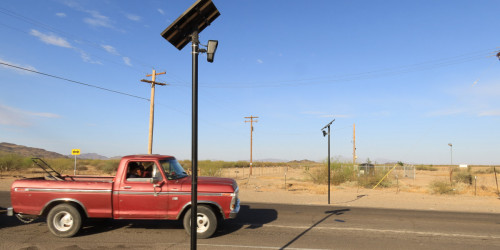Flock Safety loves to crow about the thousands of local law enforcement agencies around the United States that have adopted its avian-themed automated license plate readers (ALPRs). But when a privacy activist launched a website to map out the exact locations of these pole-mounted devices, the company tried to clip his wings.
The company sent DeFlock.me and its creator Will Freeman a cease-and-desist letter, claiming that the project dilutes its trademark. Suffice it to say, and to lean into ornithological wordplay, the letter is birdcage liner.
Representing Freeman, EFF sent Flock Safety a letter rejecting the demand, pointing out that the grassroots project is well within its First Amendment rights.
Flock Safety’s car-tracking cameras have been spreading across the United States like an invasive species, preying on public safety fears and gobbling up massive amounts of sensitive driver data. The technology not only tracks vehicles by their license plates, but also creates “fingerprints” of each vehicle, including the make, model, color and other distinguishing features. This is a mass surveillance technology that collects information on everyone, regardless of whether they are connected to a crime. It has been misused by police to spy on their ex-partners and could be used to target people engaged in First Amendment activities or seeking medical care.
Through crowdsourcing and open-source research, DeFlock.me aims to “shine a light on the widespread use of ALPR technology, raise awareness about the threats it poses to personal privacy and civil liberties, and empower the public to take action.” While EFF’s Atlas of Surveillance project has identified more than 1,700 agencies using ALPRs, DeFlock has mapped out more than 16,000 individual camera locations, more than a third of which are Flock Safety devices.
Flock Safety is so integrated into law enforcement, it’s not uncommon to see law enforcement agencies actually promoting the company by name on their websites. The Sussex County Sheriff’s website in Virginia has only two items in its menu bar: Accident Reports and Flock Safety. The name “DeFlock,” EFF told the vendor, represents the project’s goal of “ending ALPR usage and Flock’s status as one of the most widely used ALPR providers.” It’s accurate, appropriate, effective, and most importantly, legally protected.
We wrote:
Your claims of dilution by blurring and/or tarnishment fail at the threshold, without even needing to address why dilution is unlikely. Federal anti-dilution law includes express carve-outs for any noncommercial use of a mark and for any use in connection with criticizing or commenting on the mark owner or its products. Mr. Freeman’s use of the name “DeFlock” is both.
Flock Safety’s cease and desist later is just the latest in a long list of groups turning to bogus intellectual property claims to silence their critics. Frequently, these have no legal basis and are designed to frighten under-resourced activists and advocacy groups with high-powered law firm letterheads. EFF is here to stand up against these trademark bullies, and in the case of Flock Safety, flip them the bird.













